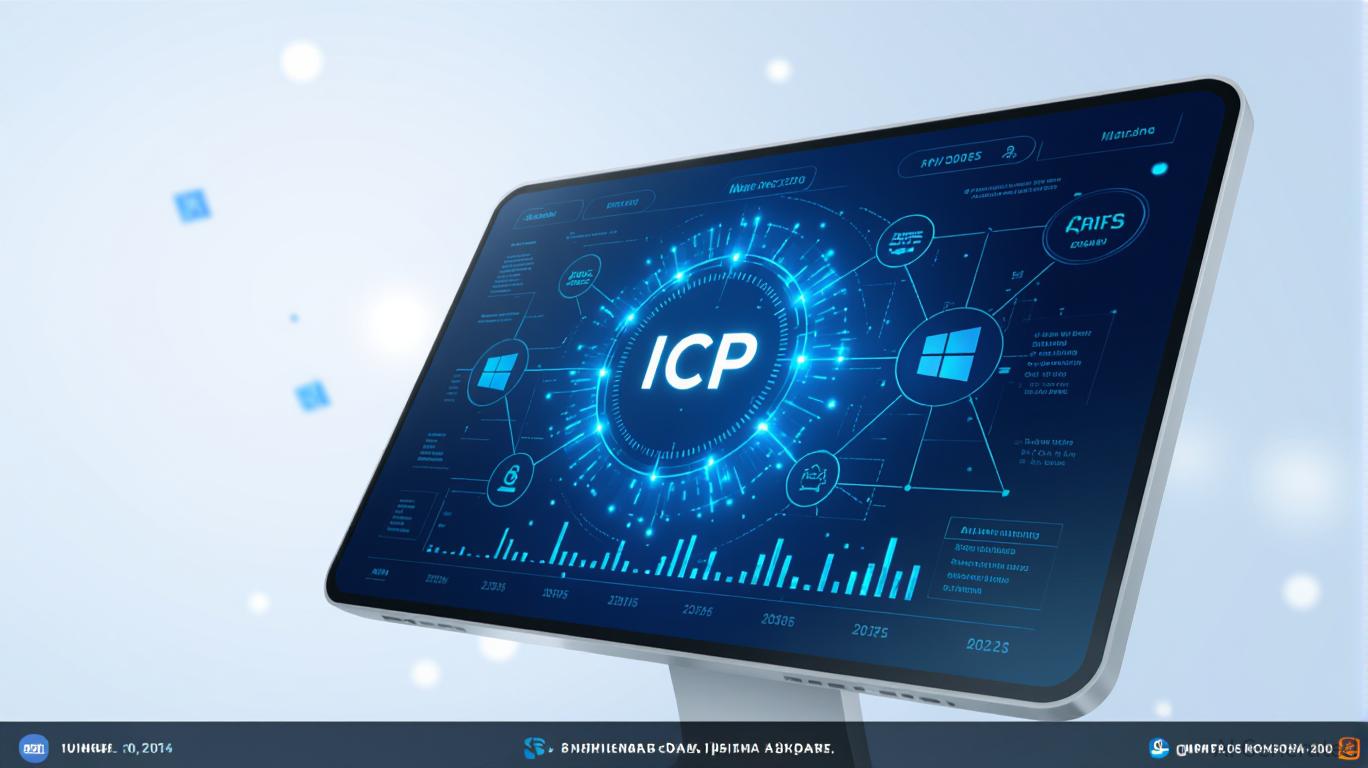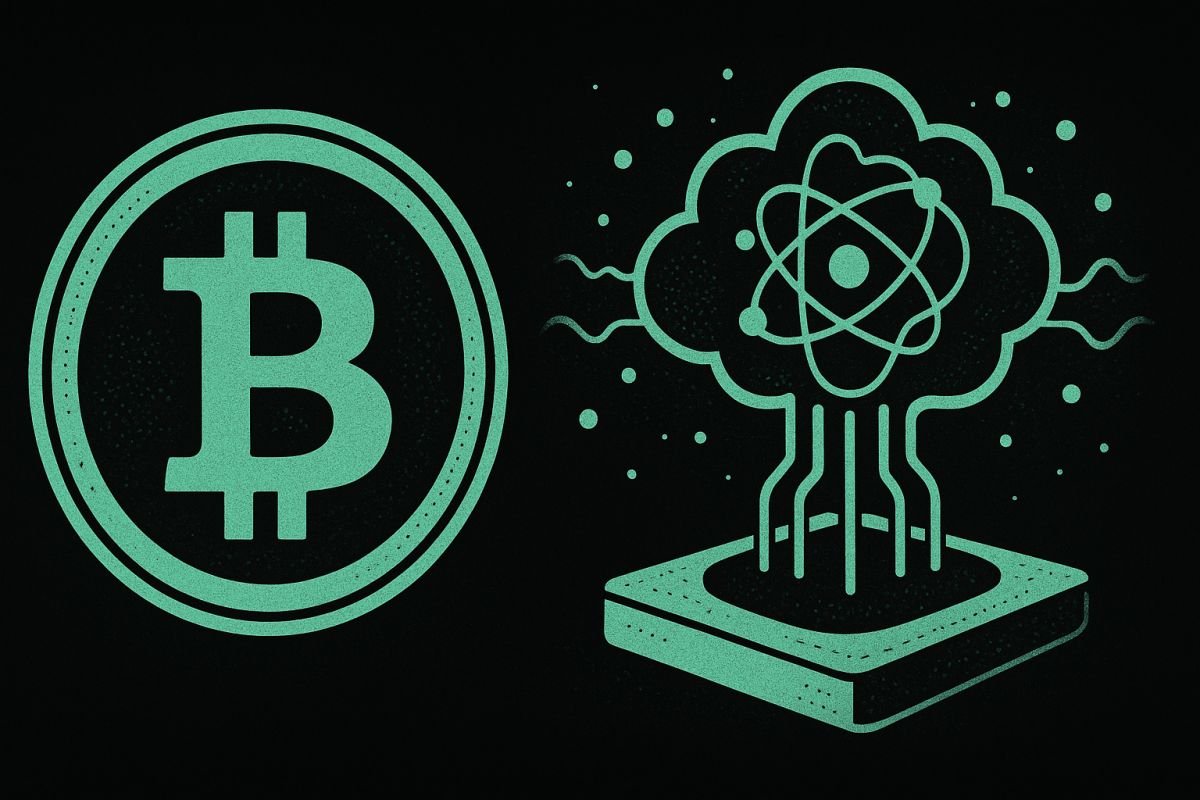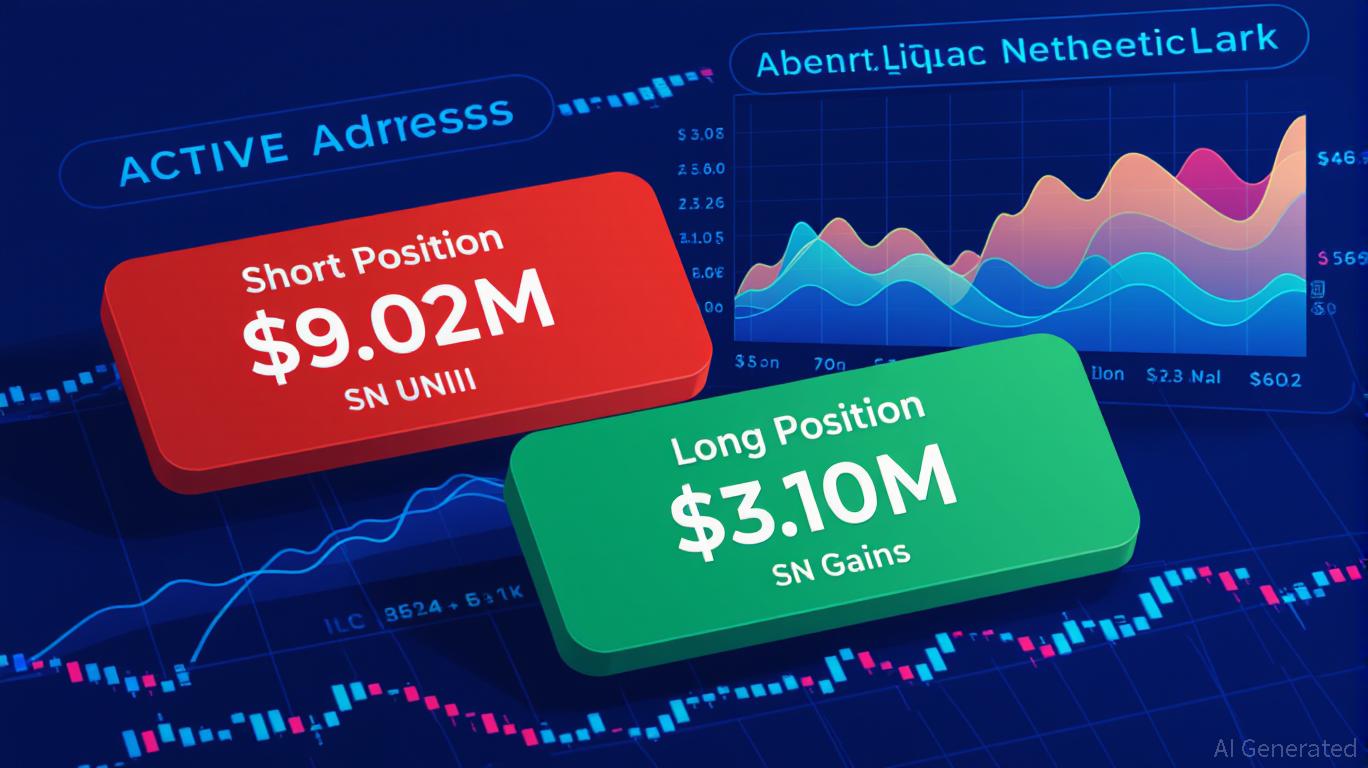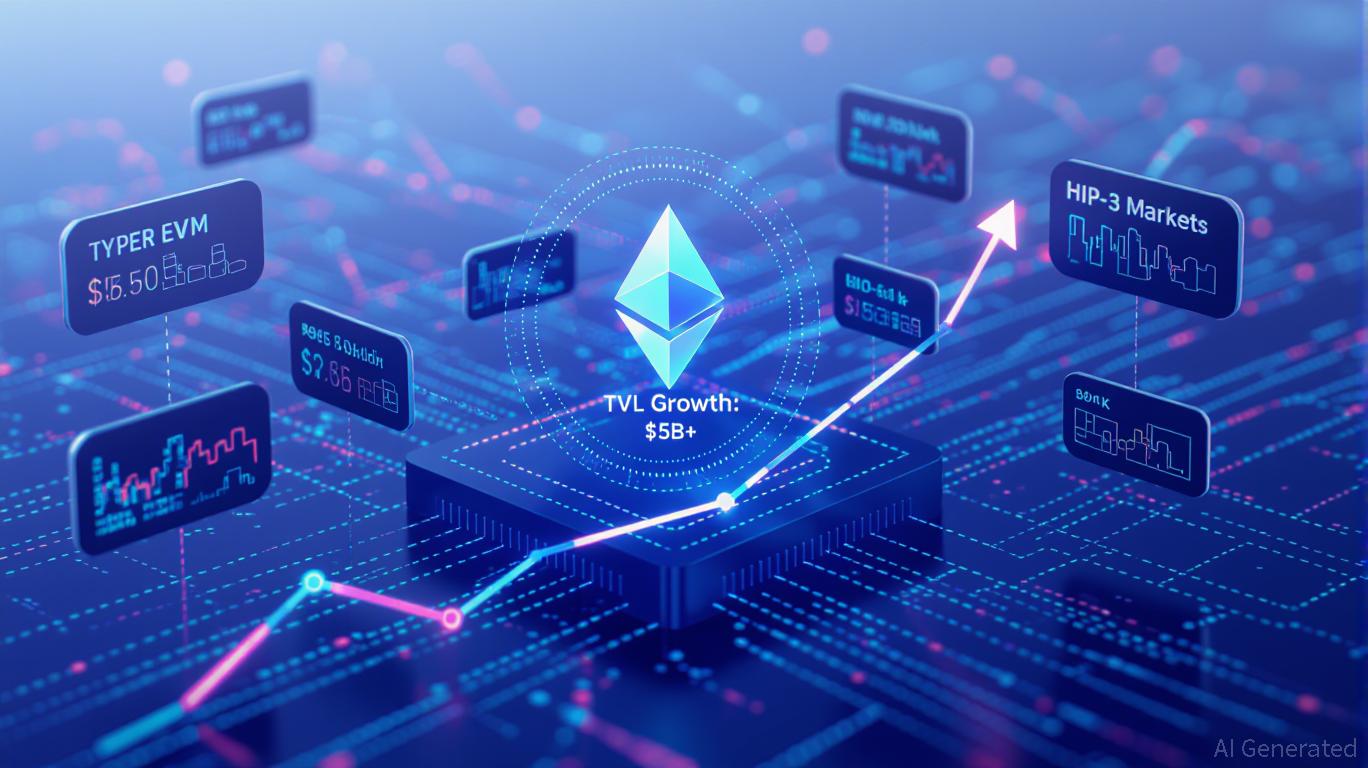ICP Caffeine AI: Transforming Decentralized Computing Markets with AI-Powered Advancements
- DFINITY's ICP Caffeine AI redefines decentralized compute as an "AI cloud engine," enabling natural language app development via the Internet Computer Protocol. - The platform democratizes Web3 creation through text/image prompts, attracting non-technical developers and driving a 56% ICP price surge post-launch. - ICP's reverse-gas mechanism and 20-40% cost efficiency gains position it as a privacy-focused alternative to AWS/Azure in healthcare and finance sectors. - Despite 30% price volatility and 22.4
A New Paradigm for Decentralized AI Development
The main innovation of Caffeine AI is its approach to making app creation available to a broader audience. By supporting the creation, deployment, and monetization of applications using text, code, or image-based prompts, the platform has seen a wave of interest from non-developers, according to PanewsLab. For example, just days after launch, ICP’s value jumped by 56% as both developers and investors saw its potential to duplicate and adapt existing apps through the App Market, as reported by
The platform’s economic structure adds to its attractiveness. ICP’s reverse-gas system, where developers pay upfront for computing resources (Cycles) by burning ICP tokens, is designed to shift the token from a high-inflation asset (14.4% annual inflation) to a deflationary one, as explained by PanewsLab. This change is vital for long-term value, as higher demand for Cycles could enhance the token’s utility and scarcity.

Performance Benchmarks and Competitive Edge
Although direct comparisons to AWS and Azure are still limited, ICP’s system brings distinct strengths. Its "chain-of-chains" subnet design allows for significant scalability and throughput, with recent enhancements like the Flux Milestone boosting computational power, as detailed in a
Cost-effectiveness is another key factor. According to Global Gurus, ICP’s AI inference achieves near-instantaneous response times, and its output costs are lowered by 20–40% through techniques like mixed-precision arithmetic and caching, as the report states. These improvements make ICP a strong option for organizations that value privacy and data control, especially in sectors like healthcare and finance, as described in the Dfinity forum post.
Market Impact and Institutional Adoption
The debut of Caffeine AI led to a 30% increase in ICP’s price, reaching a peak of $9.50 on November 9, 2025, according to PanewsLab. However, this was followed by a 20% pullback, reflecting market speculation and concerns about scalability, as PanewsLab also mentioned. Nevertheless, interest from institutions has risen, with Hyperliquid launching ICP perpetual contracts with up to 5x leverage, as noted in the Bitget report. Collaborations with Microsoft Azure and Google Cloud further reinforce ICP’s appeal to enterprises, though a 22.4% drop in dApp activity in Q3 2025 points to ongoing adoption challenges, as also reported by Bitget.
The future of the App Market will be crucial. If users can successfully earn revenue from their applications, ICP may evolve from a governance-focused token to one driven by utility, following a path similar to
Challenges and the Road Ahead
Caffeine AI is up against strong competition from both established cloud providers and decentralized alternatives like BigBear.ai, as highlighted in the Bitget report. The reduction in dApp usage also underscores the importance of better user education and improved development tools. For ICP to maintain its progress, the DFINITY Foundation needs to resolve scalability issues and showcase practical use cases that validate its decentralized approach, as suggested by PanewsLab.
Conclusion
ICP Caffeine AI marks a significant step forward in decentralized computing, using AI to connect Web2 and Web3. While challenges like price swings and adoption barriers persist, the platform’s novel design and increasing institutional support point to promising long-term prospects. Observers should keep an eye on Cycles demand, App Market performance, and enterprise collaborations to assess whether ICP can establish itself in the AI-powered cloud sector.
Disclaimer: The content of this article solely reflects the author's opinion and does not represent the platform in any capacity. This article is not intended to serve as a reference for making investment decisions.
You may also like
Quantum Computing Could Break Bitcoin Security — Here’s What You Can Do Now to Secure Your BTC

Hyperliquid (HYPE) Price Rally: Increased On-Chain Engagement and Institutional Interest Drive Expansion Prospects
- Hyperliquid's HYPE token surged 32% driven by whale trading and institutional adoption via HIP-3 framework. - Whale activity shows $9M UNI short vs. $3.1M long positions, highlighting platform's speculative role in volatile assets. - Institutional partnerships with RedStone and Felix, plus 21Shares' ETF application, signal growing market confidence. - TVL reached $5B with 73% decentralized trading share, but regulatory gaps and leadership changes pose sustainability risks.

The Growing Fascination with Hyperliquid: Is This the Next Evolution in Cryptocurrency Trading?
- Hyperliquid dominates decentralized trading in 2025 with $303B Q3 volume, 62% perpetual DEX open interest, and $5B TVL growth. - Ecosystem expansion includes HyperEVM (100+ protocols, $2B TVL) and USDH stablecoin (backed by BlackRock , $2.2M trading volume). - Institutional adoption grows via 21Shares' ETF application, but risks include regulatory scrutiny, 16-validator security vulnerabilities, and HYPE token volatility. - Competitors like Aster (near-$30B daily volume) challenge Hyperliquid's dominance

YFI drops 2.95% over 24 hours as market experiences turbulence
- Yearn.finance (YFI) fell 2.95% in 24 hours to $4,851 amid crypto market volatility. - Despite short-term gains (0.96% weekly, 2.52% monthly), YFI has dropped 39.62% over one year. - Traders analyze technical indicators and on-chain data to assess if the dip is a correction or deeper trend. - A backtest evaluates moving averages and volume signals to test strategies for mitigating losses during volatility.